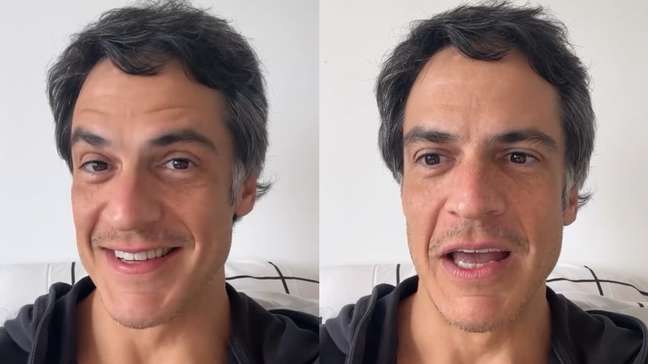The administrative sanction imposed by the National Council of Justice (CNJ) on Judge Siro Darlan, of the Court of Justice of Rio de Janeiro (TJ-RJ), of forced retirement, is the harshest possible in the judiciary.
Unanimously, the councilors decided to punish the magistrate, who will be entitled to salaries commensurate with seniority, i.e. he will continue to be paid.
The CNJ concluded, in its Tuesday 14 ruling, that he committed serious functional misconduct and was unable to continue his career.
The penalty is more severe than the one proposed by the Public Prosecutor himself, who proposed the censure. The magistrate says he is the victim of “relentless persecution”.
understand the case
The administrative disciplinary procedure was opened in August 2018. Siro Darlan was accused of having favored a client of his son, Renato Darlan, who is a lawyer.
The judge granted habeas corpus, during the judicial night shift, to place under house arrest the former adviser of Duque Caxias (RJ) and retired military police officer Jonas Gonçalves da Silva, known as “Jonas É Nós”, accused of leading a militia in the Baixada Fluminense. The retired PM was arrested in Operation Capa Preta.
The justification was the state of health of the former councilor. The interim decision immediately revoked the arrest warrants issued in six cases that were being processed by different courts. The injunction ended up being overturned by the Rio Court of Justice and Jonas was arrested again.
What does the defense say?
Attorney Júlio de Carvalho, who represents the judge, argued that Renato Darlan had left the law firm in charge of defending the councilor 90 days before the decision.
He also said Siro Darlan was not given access to trial details because he was on duty, when access to the procedural system would have been restricted.
The defense also invested in the argument according to which Darlan is recognized as an allied magistrate of the so-called ‘criminal guarantee system’.
“We’re talking about a magistrate firm in his positions, a critic, who can be called guarantor when the term criminal guarantee hadn’t even been invented”, he defended before the vote.
What the CNJ concluded
Councilor Salise Sanchotene, rapporteur of the case, considered that it was not proven that Renato Darlan had distanced himself from the defense of the former councilor, which, in his opinion, proves the violation of the judge’s duty of impartiality.
The rapporteur also highlighted that the house arrest had already been denied by the judges in the case and that the retired PM suffered from chronic illnesses and not from ‘acute’ health problems which would justify an urgent decision on the night shift.
“I depart from the defense when he brings here the more libertarian vision of the magistrate, i.e. not what it is about, nor opposition to prison, but the awareness that a judicial decision has been issued absolutely detached from the procedural technique and the legal requirements for both,” he defended.
Another point that gained prominence in the ruling is that, according to the rules of the Rio Court of Justice, the judge did not have to work on duty, which was the responsibility of magistrates with less time on duty. Siro Darlan, on the other hand, volunteered for the job.
“What appears to be a succession of strange coincidences is nothing more than the demonstration of a deep and articulated link that compromises the application of criminal law, the effectiveness of the Justice system and the image of the Judiciary as a whole “Concluded Councilor Giovane Olson.
WITH THE WORD, JUDGE SIRO DARLAN
Following the CNJ’s decision, the judge released an open letter:
Writing this article is painful for me, because writing it is admitting that there is something wrong, very wrong, in the area to which I have dedicated my professional life, which is the Brazilian judiciary. Today I have been in the judiciary for over 40 years, and this experience merges with my very existence. Before moving on to the case that brings me to these lines, I will tell you a few lines of my trajectory.
Born in Cajazeiras, Paraíba, I came to Rio as a child. I came with my mother, who had decided to leave Paraíba and come to experience a better life in Rio de Janeiro, then the capital of Brazil. We came with her and my siblings and went through the many difficulties common to migrants from the northeast, difficulties which persist to this day, it is worth noting.
So I taught myself what it’s like to be a poor young man in a big Brazilian city. If I have not lacked the love of a mother, if I have not lacked the love of my brothers, if I have been welcomed by the Augustinians at the Colégio Santo Agostinho, I have also learned the hardships of a state public boarding school, life has told of a seamstress to support her children by an old Singer machine.
From this experience was born the commiseration for those who fail in life and the understanding of how important it is to give, especially to young people, a second chance, a second chance of recovery. I am not reporting here the misunderstandings I had to face from those who hastily prefer to throw people into the real dungeons of our prison system, rather than listen to them and try to give them the possibility of resuming their lives, their citizenship.
I was lucky enough to be a titular judge of the Second Childhood Court and, shortly after, of the First Childhood Court, when the Statute of the child and adolescent was implemented, created with law 8069, of July 13, 1990. I answered for these Courts from 1991 to 2004, where and when I was involved in showing society the rights of children and adolescents, rights that become even more important when we are dealing with defenseless children, living on the street, victims of all kinds of violence and arbitrariness. But not only these children deserved the attention of justice at this time. We also investigated complaints of young people living in situations that were inadequate for their psychological training when employed by large media groups. They were young people who, hired as actors and extras, did not receive the psychological support they deserved when they staged strong scenes that were not in line with their age. These measures have brought us great enmity and misunderstandings, many have accused us of seeking the media spotlight and generating useless and unnecessary controversy.
None of this could stop me from facing what I face today. A relentless pursuit by my peers, some of them former friends. First they started a lawsuit in which I was accused of selling a sentence. I have been acquitted of this trial in the Supreme Federal Court (STF) under HC 200.197 denounced by Minister Edson Fachin, with my innocence exhaustively proven in the face of the insidious charge of my professional and personal honor.
But that wasn’t enough to calm the anger of my detractors. Defeated in criminal proceedings, they have decided to circumvent my acquittal by now filing an administrative proceeding with which they aim to tarnish my career built within the best practices of the judiciary with a forced retirement.
The reasons are once again false and the result of the work of minds distorted by evil, by the lack of moral balance. They accuse me of having visited a prisoner without having followed the necessary procedures. Now, in fact, I have visited the prison in search of subsidies to prepare my thesis at the National School for the Training of Magistrates, whose approved theme was “Structural racism as a cause of super-imprisonment”, thesis which I concluded with full academic merit . Thesis that addresses another transversal interest in my career, namely the protection of victims of racism, this sociopathy that afflicts Brazilian society and is reflected in a burning way in the judicial system.
My interest in verifying the excesses to which Afro-Brazilians are subjected on a daily basis in the streets, police stations, courtrooms and prisons throughout Brazil is not welcomed by my accusers. For them, I lack the energy to fit in with most Brazilians who live in a world without opportunities, without respect from the state. They forget the color of my skin, they forget my years in public boarding school, they forget the 16-, 18-hour workdays I lived through until I got here.
True, I am not one of them. I am one of the few who has overcome the barriers that were there to impede my progress. And don’t ask me to see poor Brazilians as if they were part of another life of mine. They are part of me, and from me they will always have the law to fulfill and not to scourge. In my court they will feel the hammer of Justice, but they will not feel the lash of prejudice on their skin.
Source: Terra
Rose James is a Gossipify movie and series reviewer known for her in-depth analysis and unique perspective on the latest releases. With a background in film studies, she provides engaging and informative reviews, and keeps readers up to date with industry trends and emerging talents.








